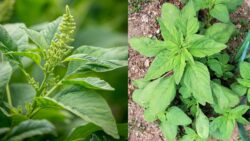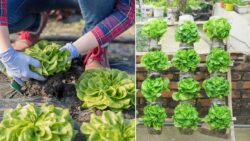Easiest Pest Control Trick – The easiest pest control trick is a simple, natural method that many gardeners use to keep their gardens completely bug-free. It’s safe, eco-friendly, and works like magic without needing harmful sprays or chemicals.
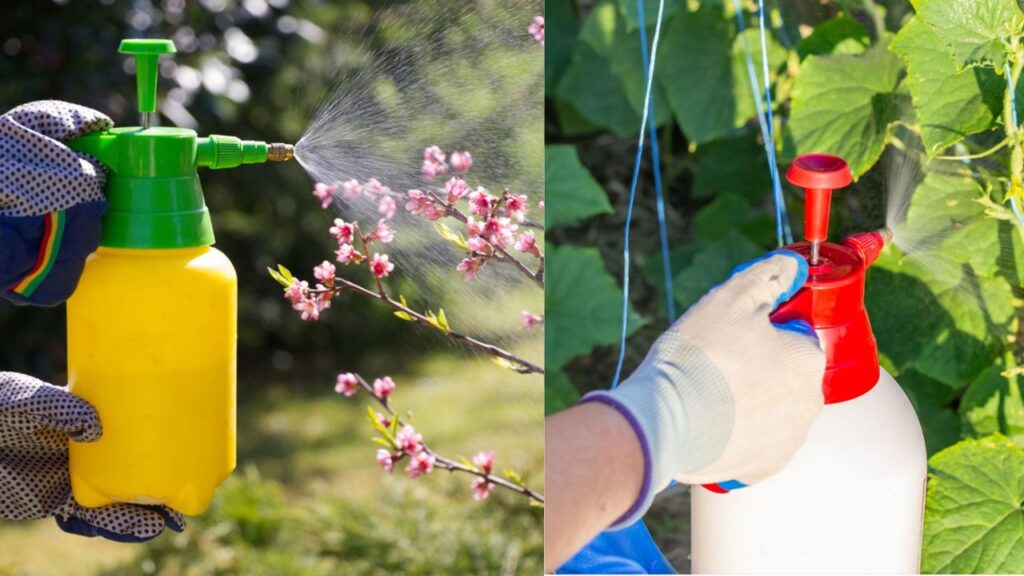
Why Gardeners Love Natural Pest Control
Gardeners across the world are turning to natural pest control because it’s gentle on plants and the environment. Instead of relying on harsh insecticides, this trick uses common household items and garden-friendly methods to repel bugs naturally. It saves money, protects pollinators like bees, and keeps your veggies fresh and safe to eat. Best of all, it works on almost every type of pest — from aphids to caterpillars — without harming your soil or crops.
The Secret Behind the Easiest Pest Control Trick
The secret lies in creating a natural barrier using a mix of homemade pest repellent and companion planting. When you combine strong-scented herbs like mint, basil, and rosemary, their aroma naturally drives away harmful insects. You can also make a DIY spray using ingredients like garlic, neem oil, or vinegar. This approach doesn’t just stop bugs from entering — it breaks their breeding cycle and keeps your plants healthy all year round.
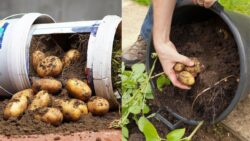 Grow Unlimited Potatoes in Buckets – The Secret Plastic Container Trick for Year-Round Harvests
Grow Unlimited Potatoes in Buckets – The Secret Plastic Container Trick for Year-Round Harvests
Step-by-Step Guide to Pest Control Trick Gardeners Swear By
- Step 1: Identify the Pests
Before you start, take time to observe which bugs are attacking your plants. Look for chewed leaves, holes, or sticky residue. Identifying the right pest helps you choose the best natural remedy for your garden.
- Step 2: Prepare a Natural Spray
Mix 2 tablespoons of neem oil, 1 teaspoon of liquid soap, and 1 liter of water in a spray bottle. Shake well and spray on leaves early in the morning or late evening. This natural garden spray prevents pests without damaging plants.
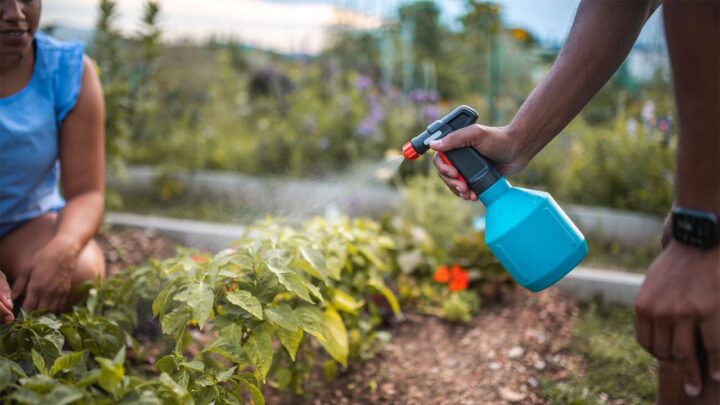
- Step 3: Use Companion Planting
Plant herbs like basil near tomatoes, mint near cabbage, and marigolds along the garden borders. These plants act as natural pest repellents, confusing insects with their strong scents.
- Step 4: Attract Beneficial Insects
Encourage ladybugs, lacewings, and bees in your garden. These insects feed on harmful pests and naturally balance your ecosystem. You can plant dill, fennel, or sunflowers to attract them.
- Step 5: Keep Your Garden Clean
Regularly remove dead leaves, fallen fruits, and weeds. These attract pests and provide hiding spots for eggs. Keeping the garden tidy reduces the chance of infestations.
- Step 6: Repeat and Monitor
Natural pest control requires consistency. Repeat spraying every week and monitor your plants for new pest activity. Over time, you’ll notice fewer bugs and healthier growth.
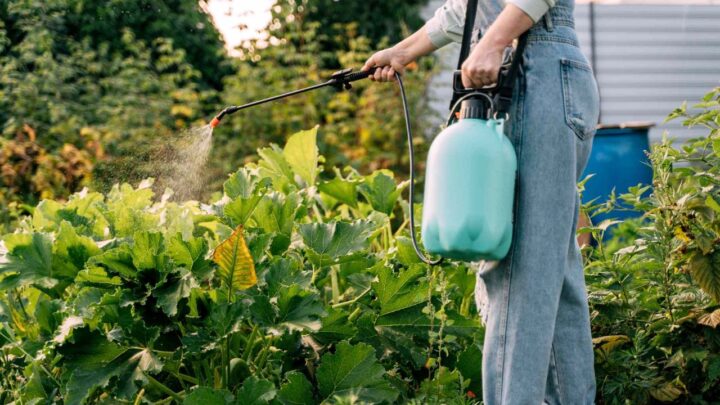
Extra Tips for a Pest-Free Garden
- Spray diluted vinegar around garden borders to deter ants and aphids.
- Use crushed eggshells or diatomaceous earth to protect soil plants from snails.
- Water early in the day to avoid fungal problems at night.
- Rotate crops each season to prevent pest buildup in the soil.
- Keep compost covered to stop flies and insects from breeding.
| Pest Type | Natural Remedy | Plant Companion |
|---|---|---|
| Aphids | Neem oil spray | Marigold |
| Whiteflies | Garlic water | Basil |
| Slugs | Crushed eggshells | Mint |
| Caterpillars | Soap water spray | Dill |
| Ants | Vinegar solution | Rosemary |
FAQs
What is the easiest pest control trick?
It’s a natural method using homemade sprays, companion planting, and beneficial insects to repel pests without chemicals.
Is this method safe for all plants?
Yes, it’s gentle and suitable for vegetables, herbs, flowers, and fruit plants when used properly.
How often should I apply the natural spray?
Apply once a week or after heavy rain to maintain full protection from pests.
Can I use neem oil daily?
No, neem oil should only be used once a week to avoid damaging plant leaves.
A bug-free garden is possible with patience and consistency. By using natural tricks and eco-friendly steps, you’ll create a thriving, healthy garden that rewards you with fresh blooms and harvests all year long. Stay positive, keep learning, and enjoy every moment of your gardening journey!


